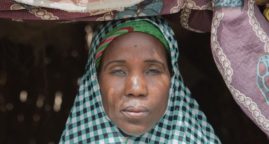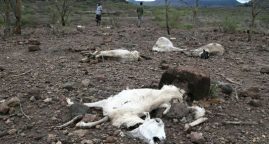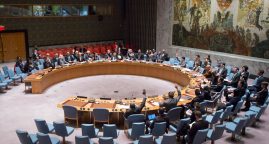H.E. Albrecht von Boeselager: The age of chivalry can show us how to help today’s refugees
We must take effective and sustainable steps to stop people-smuggling, writes Albrecht von Boeselager
Article published on The Financial Times website
The refugee crisis has defined the year now drawing to a close. Finding a solution to it will be one the urgent political challenges of 2016. It may perhaps sound surprising to hear it from the world’s oldest surviving order of chivalry, but to achieve this we first need to understand the economics of the crisis.
As one of the longer-standing actors in the humanitarian field — we established our first hospital in Jerusalem in 1048 to provide care for sick and poor pilgrims — the Sovereign Order of Malta has learnt from more than 900 years of experience the need to be as empathetic as possible in caring, but also to be neutral and rational in analysing the situation.
Most of the refugees seeking asylum put their lives into the hands of criminal organisations specialising in people smuggling. This has become a boom industry that feeds off human desperation and it is not going to stop in the foreseeable future.
As one of the most profitable businesses of our times, migrant smuggling has reached a level of sophistication and complexity that will be hard to demolish. War and civil unrest in Syria, Eritrea, Afghanistan and many more countries have fuelled the demand for smuggling services, which can now count on a widespread and flexible network.
The existence of this market suggests that any policy to tackle human smuggling should aim at targeting both supply and demand. Building walls, setting up razor fences and sealing borders reduces the supply but will not halt the demand. On the contrary, it is the absence of safe and legal avenues that fuels the call for smuggling services, as last month’s migration summit of European and African leaders in Malta stressed.
To counter this, orderly border procedures and legal controls should be implemented. Weakening the profit margins of human smuggling by choking demand rather than the supply is pivotal in securing long-term stability, more so than erecting walls and sealing borders. Migrants will resort to a different route in no time, guided by dexterous smugglers.
Likewise, while military action aimed at destroying boats and other smuggling infrastructure has been successful with Operation Atalanta, an EU naval campaign to eliminate piracy off the coast of Somalia, these methods cannot be applied when vessels are carrying refugees.
A shortage of boats would result in even more people crammed aboard those that remain, and would encourage migrants to build their own rafts. Seizing or sinking vessels could dent the profitable trade but the smuggling industry is reactive: it even came up with innovative ways to overcome the use of drones in vessel-detecting operations.
Another example is the vast influx of inflatable dinghies coming into Libya and being sold to smugglers. This has become another booming trade in a lawless land that is on its way to becoming the main centre for organised crime in the central Mediterranean.
Priorities include a common European asylum policy and creating legal channels for refugees to claim asylum
While international attention is focused on the political issues in and around Syria we almost forget the economic implications for refugees. The conditions of Syrians living in camps in neighbouring countries are desperate.
The daily ration of international aid agencies has been dramatically cut. Only desperation could lead a mother or a father to risk the drowning of their children in a quest for a better future.
There are no instant solutions, but there are steps we can take toward an effective and sustainable solution. Priorities include a common European asylum policy and creating legal channels for refugees to claim asylum without undertaking danger-filled voyages across the sea or hidden in trucks.
We also need long-term anti-trafficking measures, more economic aid for refugees in countries neighbouring Syria, and co-operation and development policies across the Middle East and Africa.
This requires us to be brave and visionary. Policies should be moulded by far-sighted leaders who draw on the experience of the aid agencies and institutions on the ground. People with experience of the day-to-day crisis can see beyond the superficial — and beyond election slogans.
The writer is grand chancellor of the Sovereign Order of Malta, H.E. Albrecht Freiherr von Boeselager
Related Articles
Malteser International calls for more humanity ahead of World Refugee Day
06/20/2018. The UNHCR estimates there are now almost 70 million people forcibly displaced across the globe.
New UN-backed report cites climate change among factors fuelling internal displacement
06/12/2016. The release of a global report revealed that more than 19 million people in 2015 were forced from their homes by natural hazards.
Ban welcomes ‘change in strategy and mindset’ as UN adopts landmark resolutions on peacebuilding
04/27/2016. The new resolutions bring to the fore the concept that conflict prevention is “something this Organization was fundamentally established to do.”






